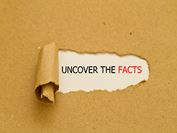You’re searching for that perfect summer internship. Or maybe wrapping up your college education, and ready for your first full time job. Or perhaps you’re ready to make a move, but haven’t interviewed in a while; you’re nervous and unsure of the hiring process. We’ve compiled this list of Dos and Don’ts to help prepare you for interviews – those short meetings, often with a stranger, that can change your life forever.
DO: Apply for jobs for which you are a strong candidate
During the interview, you can discuss career paths and get details on other positions, including those you would hope to move into in the future.
DON’T: Apply for jobs for which you don’t meet basic qualifications
Typically, you will not receive a response, and certainly not an interview, when applying for jobs for which you are not qualified.
DO: Show up on time
What’s on time? 15 minutes early. Unless you have completed an employment application ahead of time, you will need to fill one out once you arrive; this usually takes 10 – 15 minutes. If they book you for a 1:00pm interview, they are expecting to meet with you at 1:00pm. Be there by 12:45pm, to ensure you have time to complete the paperwork and will be ready to speak at 1:00pm, sharp.
DON’T: Show up very early or late, or don’t show up at all
Be respectful of the interviewer’s time. And if you don’t show without a call or email, don’t expect to get another chance at an interview. Now, or in the future.
DO: Dress professionally
The dress code varies widely in the landscape industry. Some offices are business casual, or casual, while others require employees to wear business attire. If you are unsure, business casual is typically appropriate for entry level positions, while business attire is a better choice if applying for a management or sales position. If you are unsure, don’t hesitate to ask when you schedule the interview. Generally, it’s better to be overdressed than underdressed. Be prepared for alternative methods of interviewing, such as a phone or video interview. Be familiar with the software to be used, and if you are not, don’t hesitate to ask for instructions or clarification. Dress for a video interview just as you would an in-person interview. And be sure your surroundings are clear of distractions such as people and pets.
DON’T: Wear jeans, work boots, sneakers, or anything dirty
There is an exception to this rule. If you are coming directly from your existing job to the interview, it may be appropriate to wear a work uniform. However, you will want to check with the interviewer first. Most will prefer to meet with you dirty at 5:00pm, then clean at 6:00pm.
DON’T: Chew gum (or anything for that matter….)
Bringing and sipping water is ok. Other than that, your mouth should be empty. No gum, no chewing tobacco, no food, no mints.
DO: Research the company (website, brochures, etc.)
Every employer has information available, via their website, Facebook, LinkedIn, or other sites. Take time to investigate and be prepared.
DON’T: Forget who you are meeting with
The interview’s going great, until you say you are interested in working in the assistant estimator role. Whoops! That’s next week’s interview – today you are meeting about the supervisor role. The interviewer has taken time to prepare for you; you should be equally prepared.
DO: Have questions ready to ask
Prepare at least three questions for the interviewer. Print them out. You may find that your questions are answered during the interview, and if so, consider other questions that will demonstrate your curiosity about and interest in the position.
DON’T: Answer questions with only a yes or no
Unless it’s a speed round of questions, and you have been specifically asked to give only yes or no answers, give detailed and thoughtful answers to each question from the interviewer.
DON’T: Give rehearsed or clichéd answers
Candidate: “My biggest weakness is I’m a perfectionist.“
Hiring Manager: Thinks….’third time I’ve heard that this week’
A worse response – saying you have no weaknesses. And yes, interviewers do hear that more than you think.
DO: Send thank you note via postal or email within a week
Always, always send a thank you. Email is ok, but written notes have more impact. Make a note of who you’ve talked with (in person or via email), and who you’ve met with during your visit. Save emails and business cards to ensure you have the correct contact information.
Armed with these tips, you can be more fully prepared for your job or internship interview.
One final tip: don’t forget to be honest, be positive, and be yourself.




